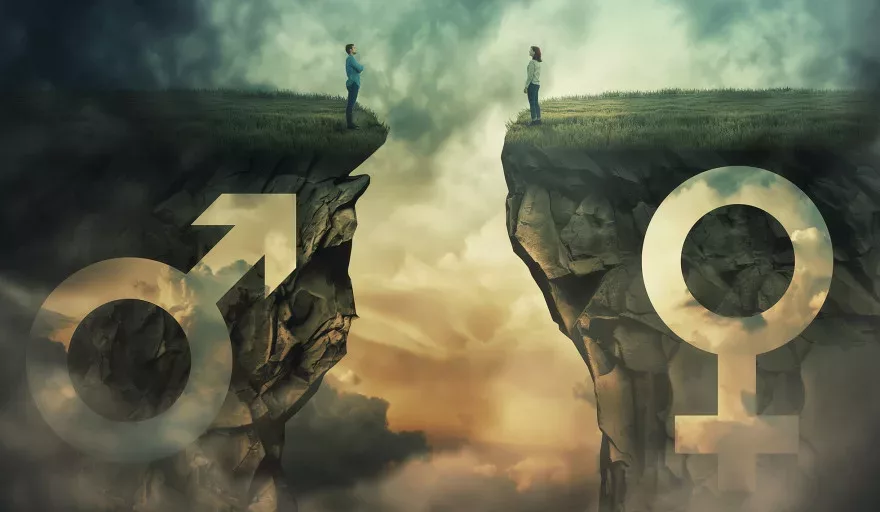New research has revealed the challenges facing gender equality in the age of climate change, and highlighted the need for allies to the cause.
EQUALITY IN CLIMATE ACTION
Sustainability and gender equality can no longer be viewed in isolation.
Climate change affects us all, but its impacts are felt disproportionately around the world. Those living in poverty are hardest hit, but the problem stems further than that.
The truth is that climate change also disproportionately affects women, with a staggering 80 percent of people displaced by the global phenomenon being female.
Given that women constitute the majority of the world’s poor, and are more dependent on the natural resources most threatened by climate change, it’s clear to see why this is the case.
In the Asia-Pacific region specifically, women represent two thirds of the poor, and their economic insecurity is part of a disadvantageous cycle often caused by employment and land ownership discrimination, along with limited access to resources.
Gender inequality in the region is becoming even more apparent as a result of rapid urbanisation, the region’s high vulnerability to climate change and disasters, as well as environmental challenges such as pollution and ecosystem degradation.
Due to household responsibilities, women also suffer greater exposure to indoor air pollution. In Asia-Pacific, women earn a fraction of what men earn for the same work, are often informally employed, and are more likely to die during disasters that are only being exacerbated by climate change.
The Asia-Pacific region is particularly prone to disasters, which have compounded the impacts of the ongoing COVID-19 pandemic, further increasing poverty, magnifying inequalities, and worsening the vulnerability of women and girls as well as other marginalised groups. Livelihoods across Asia-Pacific are at risk due both to climate change and the pandemic, as is the fulfilment and enjoyment of human rights – especially those of women.
It has been widely reported that the COVID-19 pandemic has placed additional burdens on women, who were already suffering disproportionately from the adverse effects of climate change.
The Paris Agreement acknowledges the fact that climate commitments cannot be achieved without giving due respect to human rights, gender and social inclusion obligations. The question, therefore, is how policymakers can facilitate the inclusion of human rights and gender equality in climate policies and programmes.
IMBALANCE OF IMPORTANCE
Findings from a new global survey conducted by TEAM LEWIS Foundation have only cemented what the new challenges are that confront the progress of gender equality.
The survey was carried out in support of HeForShe, a solidarity movement for gender equality that invites men and boys as allies for a more equal world.
HeForShe provides a systematic approach and targeted platform, where a global audience can engage and become change agents for the achievement of gender equality in our lifetime. The movement invites people around the world to stand together as equal partners to craft a shared vision of a gender-equal world, and implement specific, locally relevant solutions for the good of all humanity.
Seeking to understand people’s perceptions of the disproportionate impact that climate change has on women, the survey found that just over three-quarters of people believe that climate change is a serious issue, whilst only 59 percent view gender equality in the same light.
There is evidently an imbalance between the importance people place on these two issues; yet they both have a deep connection, and the effects of climate change have a detrimental impact on the progress of gender equality.
As well as climate change, gender equality was found to have lost ground to other pressing issues around the world, such as the ongoing war in Ukraine and the COVID-19 pandemic.
Indeed, when asked, the public ranked gender equality as only the 10th most pressing issue, with healthcare and climate change top of the agenda. This perhaps comes as no surprise against the backdrop of recent global events; however, for gender equality to be of such low public priority is still cause for concern.
LEADERS OF CHANGE
Nevertheless, the report also revealed that people want governments to act, with an overwhelming majority of 75 percent believing that women must be included in government solutions for fighting climate change.
This public sentiment is echoed by UN Women, the United Nations’ agency for gender equality and female empowerment, who recently addressed the need for women to be engaged as leaders and agents of change in addressing the challenges linked to climate change, the environment, and risk reduction.
The clear message from officials, civil society representatives, and other practitioners gathered for the Asia-Pacific Regional Consultation, ahead of the 66th session of the Commission on the Status of Women (CSW66) in March 2022, was that women and girls need to be better represented in all aspects of climate change, environmental, and disaster risk reduction policy and programme processes.
Men also have an important role to perform in raising awareness of the link between sustainability and gender equality, and can play their part as allies by amplifying female voices and lifting the stories of others.





















